We hardly ever take sides on a political issue, but in this case we’re compelled to say something about the Food Freedom Act in Georgia.
Here is how it works: It allows you, the consumer, to buy food and food by-products from whoever you want. Four enlightened states now have laws that allow you to buy food from a farmer, rather than some corporate controlled supply chain.
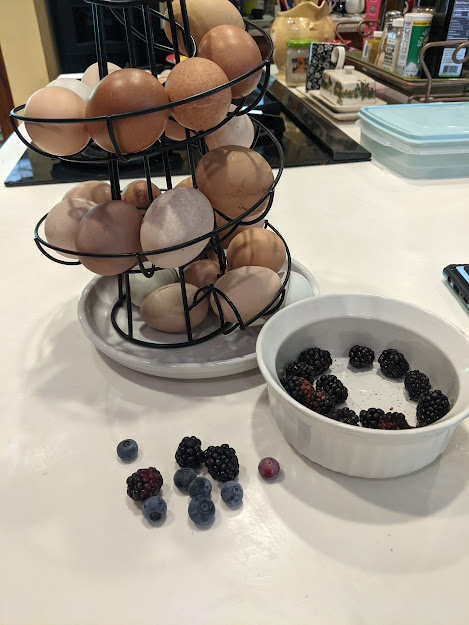
Awhile back we talked about the Georgia Food Safety Law, which basically says that you, the consumer are required by law to buy food from the food supply system. This is the opposite of what we call “Human Scale Living.”
Here’s a link, to get you up to speed.
Disclaimer
Since we are not lawyers, anything below with the word “law” or “Act” in it is for entertainment purposes only. The reader is encouraged to do his or her own research on this topic.
So what’s the story of the Food Freedom Law
Joel Salatin is one of the forefathers of this, and you can get the book “Everything I want to do is Illegal” by clicking the link above.
He has set up a little regenerative farming empire up in Virginia. What he has experienced is that in order to sell his food products to people, including people who make pilgrimages to his place, he has to go through a lot of inspections, licensing, wholesalers who don’t add value and a lot of other work just to legally sell his products.
This is an entry barrier to the small farmers and country people who could derive a little income stream by selling products.
It also means that you, the consumer, are essentially required to buy food from a big system which is dominated by corporate interests.
Here’s a video.
What’s wrong with that?
Well, when the food laws were originally put into place, in the early 1900’s, it made some sense. Back in those days there were very serious problems with food adulteration, and as a result of a public outcry, laws were enacted to try to regulate it.
Do I need to remind you about this history? Yes, I guess I do.
What has happened since then, of course, particularly since the 1970’s, there are unintended consequences. It somehow got written into the law that small farmers are not allowed to sell eggs, milk and other normal farm products into the “supply chain.” If you’re a huge farmer, you can do that, of course. You can afford to have enough scale that you can pay for facilities, including licensed kitchens, equipment, refrigeration, inspections and that kind of thing, and the necessary facilities.
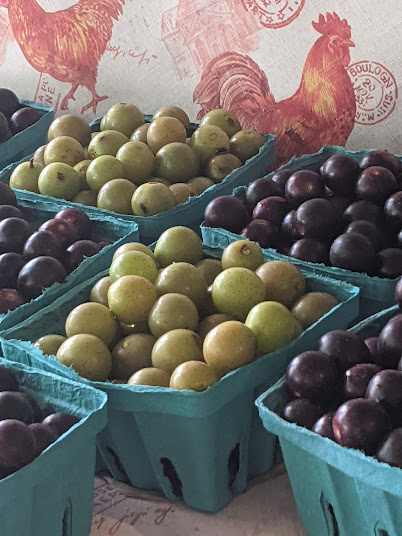
How is that working out for you?
What then happened is that the small farmers who want to bring in a little income can’t do so. It also means that the food supply is controlled by fewer and fewer people. Do I need to tell you the problem with that? We learned about that in 2020 when all of the meatpackers and poultry processor people in the middle of the country were the first to shut down with Covid.
A side issue is that it also devastated the economy in some of the little towns around us, most of which never did really recover.
The supply chain for food is heavily dependent on the distribution system, including diesel fuel, refrigeration, trucking companies and a lot of other complexities that are basically written into the law.
Also, not to put a fine point on it, the incidence of foodborne illness has actually gone up since 1960. Also, because there is pressure on the system to be as efficient as possible, it has become more and more dependent on hormones, antibiotics, and other practices that have had an impact on public health.
You may refer back to the previous article for references on that topic.
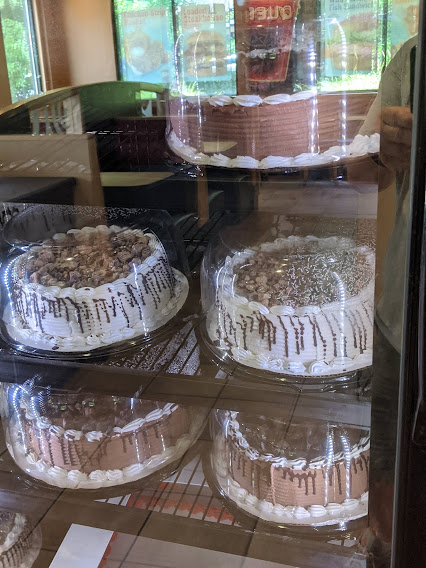
What’s the Alternative?
In four states, Maine, North Dakota, Utah and Wyoming, the “Food Freedom Law” is in effect. It basically says this:
If you, the consumer, want to buy food directly from a farmer, you can. You knowingly are running the risk of whatever terrible thing might happen to you if you eat an egg laid by a chicken that is running around in someone’s front yard, versus one that is stuck in one of those confinements.
Here, by the way, are your options: Which of these chickens do you want to eat the eggs of? Pleasant little front yard chickens, or industrial?

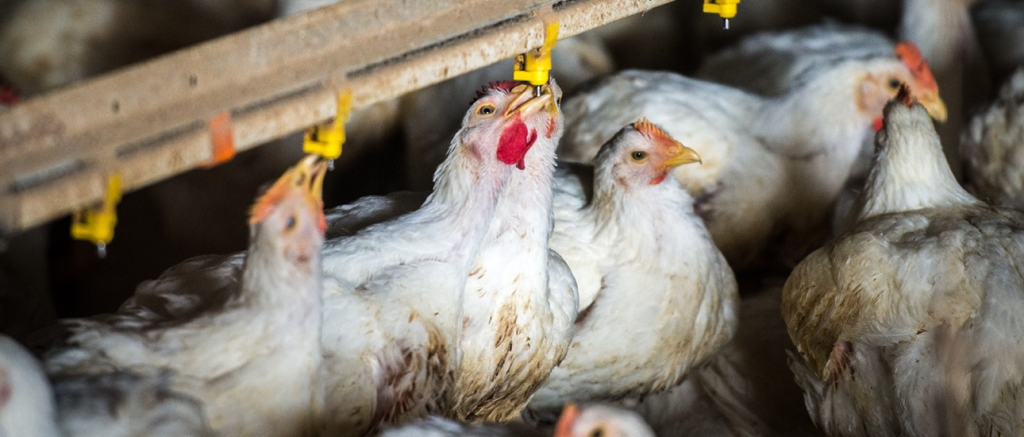
Same goes with other food. The states still have some power to investigate stories of food contamination and foodborne illness. But, if the consumer is informed, they may go ahead and accept the risk.
The link below from NEHA, the National Environmental Health Association gives a summary of this. In Maine, it’s risen to the point of a proposed Constitutional amendment
The one in Wyoming is interesting:
The nation’s first food freedom law, Wyoming’s law exempts producers of “any product which may be consumed as food or drink” from all licensing, permitting, certification, packaging, or labeling regulations for foods sold to an “informed” consumer. Sales may occur at farmers markets or through the sale out of the producer’s ranch, farm, or home. The law does not differentiate between high-risk versus low-risk products. Most products may be sold without licensing regardless of their potential hazards, including animal products.
NEHA link below
So that means if you want to sell your eggs at the Farmer’s Market, on a small scale, you can.
What are the Effects of this?
So the poor people out there in Wyoming are plagued with foodborne illness right? Well according to the link below, there have been zero reports of foodborne illness resulting from any of this activity. Some of these laws require you to identify your address, where the food was produced, which allows an investigation if it is warranted.
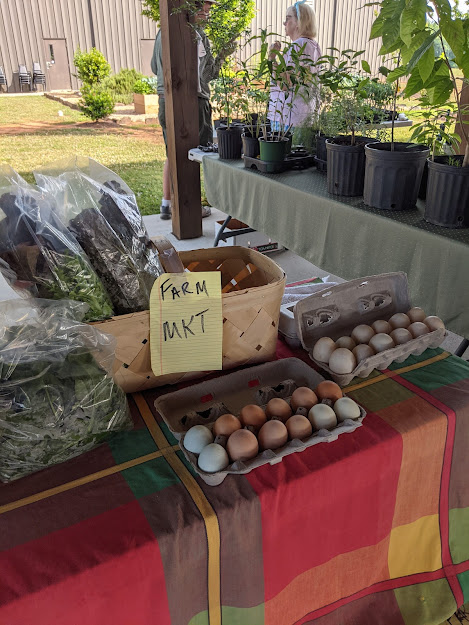
There are other good effects: It sparked a little boomlet of small businesses, which helps stay-at-home moms and entrepreneurs. Attendance at Farmer’s Markets has gone up as much as 70%. We like that because Farmer’s Markets equal traffic, and traffic helps everybody in a small town.
By the way, every vacant lot in Atlanta could have a truck garden in it, if you worked it right.
27 states including Georgia do have a “Cottage Food Law” but many of these are still restrictive. Here is a video from the hostile territory of New Jersey:
The Food Freedom Act in Georgia
There is a reference below to a “Food Freedom Act” in Georgia that was first introduced in 2011, but evidently did not get anywhere in the legislature.
There was a “farming freedom act” which is not quite the same thing, that was enacted in 2022. It does allow the sale of “raw milk” suitably identified to consumers for “pet food.”
So not to put too fine a point on it, we’re in a state where it is perfectly legal to carry a concealed, loaded firearm, as long as you don’t sell eggs from your front porch for human consumption while doing so.
Someone can comment on why this makes sense. This is supposedly about personal responsibility, right?
So who made this up?
Your two local representatives are Burt Jones and Dave Belton, and if you would like to forward this article, along with a friendly note that says “what is your thinking on this” I have put a link below.
Burt.Jones@senate.ga.gov
https://ballotpedia.org/Burt_Jones
dave.belton@house.ga.gov
We see that Dave is on the Economic Development and Tourism committee
https://ballotpedia.org/Dave_Belton
Both of these fellows accepted contributions from the Trial Lawyers Association, and our guy Burt, who is apparently running for Lieutenant Governor has accepted $4000 from the Wine and Spirits Wholesalers of Georgia, so we can presume he still favors preservation of the corporate dominated “three tiered” system.
You can check below to see who the state’s largest private employer is. That might explain some of the resistance. But, what these guys are not seeing is the increase in entrepreneurism and generation of home-based income which is something we should like.
Plus it helps the small towns, and doesn’t cost anything. All you have to do is let farmers be farmers.
What to make of the Food Freedom Act in Georgia
Oh, I guess I should say one more thing, which is there is apparently no law that says farmers can’t give “uninspected” food away.
So it’s actually about money, and has nothing to do with public safety.
As usual, we claim the TV and podcast rights to the debate on why the current law makes any sense whatsoever. Burt and Doug are invited to our place to share dangerous farm eggs, and they can tell us where they stand on this issue.
Now, if the lunatic fringe is right, and we’re headed for some sort of supply chain breakdown, this is going to be even more important.
Feel free to comment.
Links and References
Institute for Justice
https://ij.org/legislation/food-freedom-act/
American Legislative Exchange Council
Georgia Food Freedom Act
https://www.legis.ga.gov/api/legislation/document/20112012/108034
Food Freedom Legislation
Morgan County Representatives
https://www.madisonga.com/143/State-Representatives
Georgia’s Largest Private Employer
https://patch.com/georgia/atlanta/heres-georgias-largest-employer-how-many-people-work-there
![]()